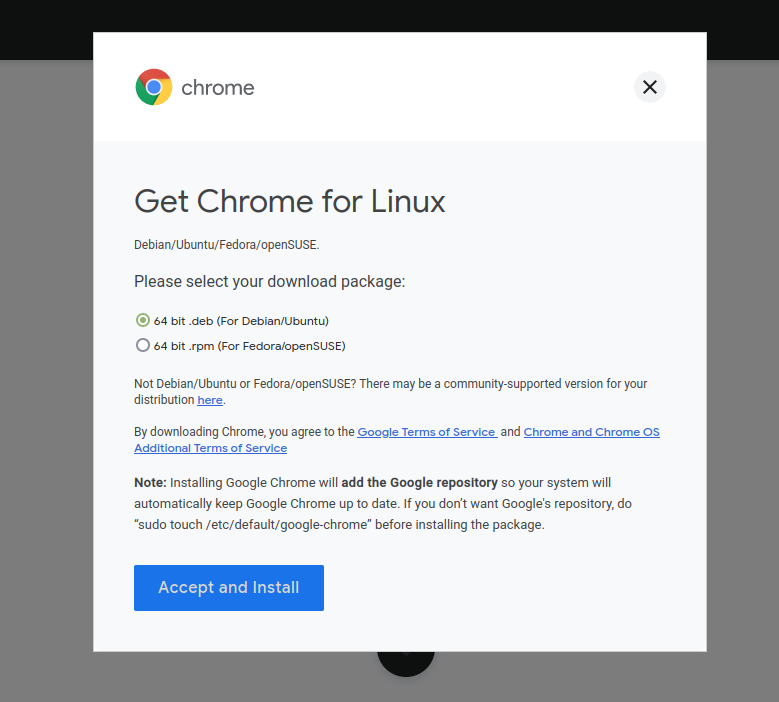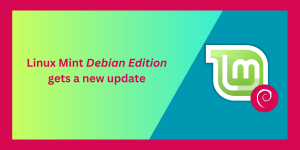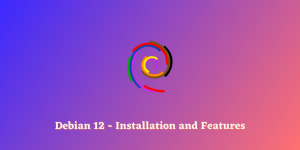In this article, we’ll learn how to install Google Chrome on Debian distributions. Google Chrome has consistently been ranked the most popular browser among internet users but you can’t find it in Debian repositories since it’s a proprietary Google software. But thankfully official repositories are not the only way to install software on Debian or any Linux distribution.
So here we have a look on how you can get started with Google Chrome on Debian.
Downloading the Google Chrome
The Google Chrome package is offered on the official Chrome website. However there are two ways to download it.
1. Install Google Chrome through GUI
Visit the official Google Chrome website and click on Downloads.
This will prompt another window asking you to select your download package. Choose the “.deb” package which is used for Debian and its derivatives like Mint and Ubuntu. After that click “Accept and Install” .

2. Command-line way
If you don’t want to leave the comfort of you command line, you can just execute the following command it will download the relevant package.
wget https://dl.google.com/linux/direct/google-chrome-stable_current_amd64.deb
wget is a utility application used to download files off the internet.
Install Google Chrome on Debian
After you have downloaded the file, execute the dpkg command to install it:
sudo dpkg -i google-chrome-stable_current_amd64.deb
dpkg is the package manager for Debian and the -i flag is used to install packages.
You have now successfully installed Google Chrome. To run it execute google-chrome in your terminal or search for it in the start menu of your desktop environment.
Updating Google Chrome
When you install the Chrome package, it adds the official Google repository in the sources list. So Google Chrome will automatically update whenever you run:
sudo apt update
Uninstalling Google Chrome
You can uninstall Chrome from your system by executing
sudo apt remove google-chrome-stable
Conclusion
That’s all it takes to install Google Chrome on a Debian distro. You can take a look at some of the other Linux distributions that we’ve covered previously!




